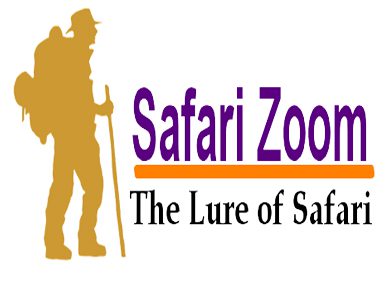Essential Tour Guiding Vocabulary: The Top 100 Terms You Need to Know
Here are the 100 important terms in tour guiding organized into 10 meaningful groups:
1. Core Responsibilities and Guiding Concept
1. Tour Guide: An individual who provides information, guidance, and interpretation to visitors during a guided tour.
2. Guided Tour: An organized excursion led by a guide who shares insights about the locations visited
3. Tour Manager: A professional responsible for overseeing the logistics of a tour.
4. Tour Leader: Another term for a guide who manages the group and provides information.
5. Tour Itinerary: A detailed plan outlining the schedule and activities of the tour.
6. Tour Duration: The length of time a tour lasts.
7. Tour Pricing: The cost associated with participating in a tour.
8. Tour Logistics: The detailed planning of all aspects of a tour.
9. Tourism: The business or industry of providing services for tourists.
10. Tourist: A person who is traveling or visiting a place for pleasure.
11. Tour Operator: A company or individual that organizes and sells tours.
12. Travel Agency: A business that arranges travel and tours for clients.
13. Tour Package: A pre-arranged combination of travel services, such as accommodation, transport, and activities.
14. Accommodation: Lodging or housing services provided to tourists
15. Transportation: Means of travel from one place to another during a tour.
16. Meet and Greet: A service where a tour guide meets tourists upon arrival to assist them.
2. Skills and Qualities
17. Communication: A critical skill for tour guides to relay information clearly and effectively to their audience.
18. Charisma: An essential quality that helps tour guides engage and entertain their guests.
19. Presentation Skills: The ability to deliver information in an engaging and informative manner.
20. Empathy: The ability to understand and respond to the feelings of guests, enhancing their experience.
21. Improvisation: The skill of adapting the tour based on the group’s dynamics and unexpected situations.
22. Time Management: The ability to manage the tour schedule effectively.
23. Crisis Management: Handling unexpected situations or emergencies during a tour.
24. Tour Guide Skills: The abilities and competencies required to be an effective guide.
3. Guest Interaction
25. Engagement: The process of involving guests in the tour experience to enhance their enjoyment.
26. Guest Interaction: Engaging with guests to create a welcoming atmosphere.
27. Feedback: Input from guests that can help guides improve their tours.
28. Guest Expectations: The anticipated experiences and services guests expect from a tour.
29. Tourist Engagement: The interaction between guides and guests to enhance the experience.
30. Tourist Experience: The overall impression and satisfaction of guests during a tour.
31. Tour Guide Personality Traits: The traits and characteristics that make a guide effective.
4. Knowledge and Expertise
32. Destination Expert: A guide who possesses extensive knowledge about the locations being visited.
33. Local Knowledge: Understanding the history, culture, and attractions of the area being toured
34. Cultural Heritage: Refers to the legacy of physical artifacts and intangible attributes of a group or society, encompassing traditions, customs, languages, and historical sites.
35. Historical Guide: A guide specializing in historical sites and landmarks.
36. Tour Guide Training: Programs designed to equip guides with necessary skills and knowledge.
37. Tour Guide Certification: Official recognition of a guide’s qualifications.
38. Tour Guide Resources: Tools and materials that assist guides in their work.
39. National Park: A protected area of natural beauty, often preserved for public enjoyment.
40. Visitor Center: A facility where tourists can get information, maps, and resources about a destination.
41. Interpretation: The process of providing meaning and context to tourists, often related to cultural and natural resources.
42. Storytelling: The art of telling stories to engage and inform tourists.
43. Public Speaking: The skill of speaking to a group of people in a clear and engaging way.
44. Body Language: Non-verbal communication through gestures, posture, and facial expressions.
45. Language Skills: The ability to speak and understand one or more languages.
46. Multilingual Guiding: Providing tour-guiding services in multiple languages.
47. Tour Script: A pre-written guide or outline used by the tour guide during a tour.
48. Tour Commentary: The information and insights shared by the tour guide during a tour.
49. Leave No Trace: A set of outdoor ethics promoting conservation in the outdoors.
50. Tour Design: The creation and organization of the tour’s itinerary and content.
5. Safety and Regulations
51. Safety Regulations: Guidelines that ensure the safety of guests during tours.
52. First Aid: Basic medical knowledge that tour guides should possess to handle emergencies.
53. Guest Safety: Ensuring the well-being of participants during the tour.
54. Crisis Management: Handling unexpected situations or emergencies during a tour.
55. Tourist Safety: Measures taken to ensure the safety of visitors during tours.
56. Emergency Procedures: The steps to take in case of an emergency during a tour.
57. Conflict Resolution: The process of resolving disputes or disagreements among tourists or between tourists and the guide.
6. Tour Types and Formats
58. Escorted Tour: A type of tour where a guide accompanies the group, managing logistics and providing commentary.
59. Cultural Exchange: The interaction between the guide and guests that enriches the tour experience.
60. Tour Theme: The central topic or focus of a tour, such as history, food, or nature.
61. Tour Group Size: The number of participants in a tour, which can affect the guiding style.
62. Tourist Attractions: Sites that draw visitors due to their cultural, historical, or recreational value.
63. Tourist Season: The time of year when tourism is at its peak.
64. Eco-tourism: Tourism focused on natural environments, often with an emphasis on conservation.
65. Cultural Tourism: Tourism related to the culture, heritage, and lifestyle of a region.
66. Backpacking: Independent, low-cost travel, often with minimal luggage.
67. Day Trip: A short trip or excursion that does not involve an overnight stay.
68. Overnight Tour: A tour that includes at least one night’s accommodation.
69. Package Tour: A tour that includes multiple elements such as transportation, accommodation, and activities in one price.
70. Guided Walk: A walking tour led by a tour guide.
71. Historical Site: A location with historical significance, often preserved for its cultural value.
72. Landmark: A recognizable natural or man-made feature that is often an important tourist attraction.
73. Wildlife: Animals living in their natural habitat, often a key attraction in eco-tourism.
74. Biodiversity: The variety of plant and animal life in a particular habitat.
75. Flora and Fauna: The plants (flora) and animals (fauna) of a particular region.
76. Local Community: The people who live in the area where tourism takes place.
77. Local History: The history of the area being visited, often shared by the tour guide.
78. Geography: The physical features of the area being visited, such as landscapes and terrain.
7. Marketing and Promotion
79. Marketing: Promoting tour services to attract guests.
80. Tour Promotion: Strategies used to advertise and sell tours.
81. Networking: Building relationships with other professionals in the tourism industry.
82. Tour Guide Associations: Organizations that support and represent tour guides.
83. Tour Guide Marketing: Strategies used to promote guiding services
84. Tourist Information Centers: Places where travelers can obtain information about local attractions.
8. Evaluation and Improvement
85. Tour Evaluation: Assessing the effectiveness of a tour based on guest feedback and personal reflection.
86. Tour Guide Performance:The effectiveness of a guide in delivering a tour.
87. Tour Guide Reviews: Feedback from guests that can influence a guide’s reputation.
88. Post-Tour Follow-Up: Contacting guests after the tour to gather feedback or offer additional services.
89. Tour Feedback Forms: Surveys used to gather guest opinions about the tour experience.
90. Tour Guide Networking Events: Connecting with other professionals in the tourism industry.
9. Tourist Behavior and Trends
91. Tourist Demographics: The characteristics of the individuals participating in tours.
92. Tourist Behavior: The actions and attitudes of individuals while traveling.
93. Tourist Trends: Current patterns and preferences in travel behavior.
94. Tourist Engagement Strategies: Methods used to involve guests in the tour.
95. Tourist Experience Enhancement: Methods used to involve guests in the tour.
10. Cultural Sensitivity and Ethics
96. Cultural Sensitivity: Awareness and respect for the customs and practices of different cultures.
97. Tour Guide Ethics: The moral principles guiding a tour guide’s conduct.
98. Crisis Management: Handling unexpected situations or emergencies during a tour.
99. Cultural Exchange: The interaction between the guide and guests that enriches the tour experience.
100. Sustainability: Practices that promote responsible tourism and minimize environmental impact.
1001: Safari: is a type of tourism that primarily focuses on wildlife viewing and exploration of natural habitats, particularly in Africa




